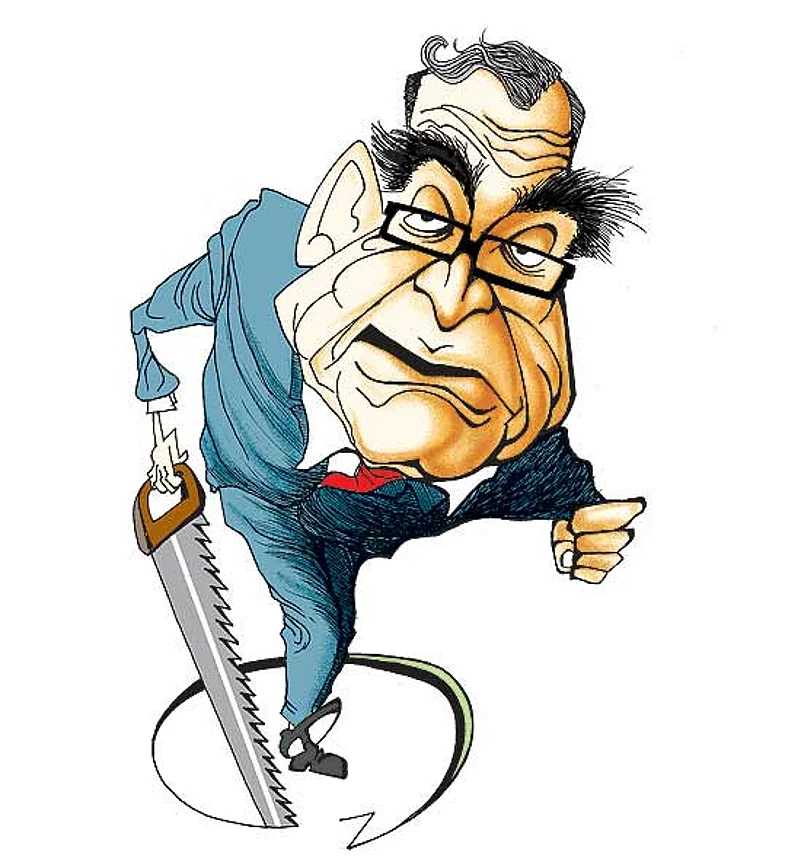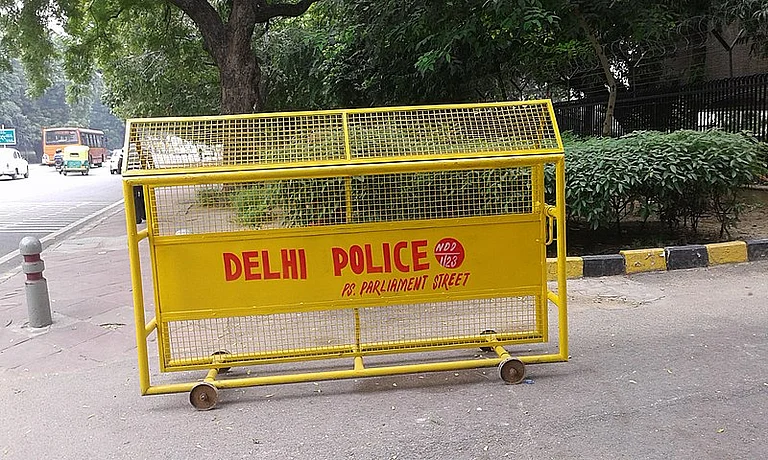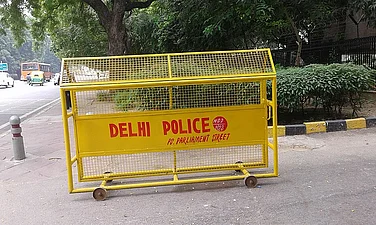Katju Crackers
- On Indians:
“90% Indians are idiots.” - On Pakistan:
“First of all, let me tell you one thing—Pakistan is no country. It is a fake country, it is an artificially created country by the British who followed the policy of divide and rule by starting this bogus two-nation theory that Hindus and Muslims have two separate nations.” - On Tendulkar:
“He is only a good cricketer. He is not socially relevant.” - On Journalists:
“Our media professionals are of low intellectual calibre, with poor knowledge of economics, history, politics, literature and philosophy.” - On pornstar Sunny Leone’s appearance on a reality show:
“We should not treat her as a social outcast. There is no saint without a past and no sinner without a future.”
***
It’s not uncommon to find the much revered and reviled Markandey Katju described in adjectives bordering on the extreme. For some, he is a ‘foghorn’, sounding the alert or is that noise in the mist? For others, he’s like ‘soda in a bottle’, mostly silent but when shaken, likely to explode. Temper on a short leash, yet a gracious host, with a yen for mushairas. Last week saw Katju making—or was it breaking—news on TV channels for what the Bharatiya Janata Party called “grave impropriety unbecoming of a judge”. Katju had not only attacked the BJP’s favourite posterboy Narendra Modi in a leading daily but had also delivered a stinging draft report on the lack of press freedom in Bihar.
In all fairness, it wasn’t as though Katju was the first to point this out. In the past too, media reports have highlighted the sordid underbelly of a shining Gujarat. The exclusion, the depressing human development indicators, it’s all been highlighted as stark contrasts in CM Narendra Modi’s bandied-about “progressive state”. Likewise, reports from Bihar have alluded to the power deployed by the editor-in-chief of the state.
However, it’s not what Katju says but what he writes in his capacity as Press Council chairman that has the BJP frothing at the mouth. In fact, they now demand that the occupant of a quasi-judicial post and the huge Lutyens bungalow that comes with it step down, as he’s crossed that most sacred of all boundaries, the Lakshman rekha of propriety. BJP spokesperson and PCI member Prakash Javadekar says, “Let’s debate the dignity of the office. Everyone is a free citizen but Mr Katju also occupies a quasi-judicial post.”
So what is it about the Press Council post that brings forth a volley of comments on sundry topics? From journalists to CMs, even the adult film star whose cause he has championed occasionally, Katju works on them like a conductor wielding the baton, even questioning the efficacy of media self-regulating bodies like the News Broadcasters’ Association (which is under a brother judge). Self-regulation is a myth, he proffers. Regulation is the key to a responsible media in Katjuspeak.
If we are to believe the council members, and there are 28 of them, including journalists, artists, intellectuals, a lawyer and MPs, Katju is forever exhorting them to aspire for the higher things in life. Literature, preferably Milton and Shakespeare, poetry, definitely Faiz (shairis), is what life is about. Indeed, Katju never tires of reminding them that he prefers the titular ‘Judge’ to a Mr. In many ways, Katju is a departure from the past when chairmen of the Press Council kept their counsel and spoke only when sought after by the media. They were known for that unspoken hallmark of a judge—judicial rectitude. In that, they carried their code of conduct as judges of the Supreme Court onto their present jobs as trustees of freedom of expression. But this is the 21st century, and as a council member said off the record, Katju represents a new generation of judges who speak their mind on a wide range of issues—from politics to sports and films.
But should he be airing his views on all and sundry topics? Coming from his chair, doesn’t it raise doubts about whether he is doing so at someone’s bidding? When he sought greater powers for regulating TV and the press, the move raised doubts about whether Katju was working to a grand government design. When newspapers mourned the passing away of the forever young Dev Anand, Katju thought it fit to tell them not to squander their pages on an actor who hallmarked the insouciant nature of young India. When the media went ballistic on the Delhi gangrape, Katju said rape isn’t India’s only problem. In the same breath, he also ticked off the police for beating up journalists who were reporting on the protests following the gangrape. Soon enough, Katju was taking on malnourishment, hunger, illiteracy, the major banes of the country which have to be written about.
In fact, here was a judge who was telling the media to mind what it covered. Something that chairmen past had never done. His predecessor and ex-Council chairman G.N. Ray says, “In my personal view, the chairman can have his views but, perhaps, they should be expressed discreetly.” But then, old-timers will remember Ray as a gentleman. As Javadekar puts it, “It’s the selective targeting that is unbecoming of the present chairman. In our meeting, I pointed it out—why pick on these two states, there were 7-8 other states too.” Not deviating from his party line, Javadekar says Katju should decide whether he is a judicial person or not. “There is a reason why Supreme Court and high court judges don’t speak their mind,” reminds Javadekar. But then, judges have to adhere to a code of conduct.
It seems the man’s utterances have got a whole spectrum of people bothered, the latest being Jammu and Kashmir CM Omar Abdullah who was admonished for restricting the freedom of the press following Afzal Guru’s hanging. At yet another forum, he attacked the parties in power in the states for using government ads as a tool to muzzle the press. He took on the chief minister of Bengal, Mamata Banerjee, for being, hold on, too dictatorial.
There’s also the small matter of the judge not being a great believer in consensus. A few months ago, a resolution was passed without the consent of all the members present. Seeking more powers for the council to regulate the media, the motion was not even listed on the meeting agenda. When members opposed this, Justice Katju didn’t approve of it. But had to finally yield to the dissent.
At another time, when the council sought to put out a report on paid news, which it did after an order from the Central Information Commission (CIC) to comply, Katju took all the credit. Says senior journalist Paranjoy Guha Thakurta, a member of the two-member panel that went into the menace of paid news, “The question is, though this was one of the first decisions taken by Katju, did he have a choice? The answer is no. He put out the report because of a deadline set by the CIC.”
Still, for all his public comments, the debate is not over whether they ring true, but whether he should be uttering them at all. As chairman of a body set up to safeguard press freedom, he should focus on being an enabler. Perhaps it’s time the ‘judge’ allowed the press to do its work and not, as someone wrote in the pages of Outlook, use his office as a “unique national pulpit”.


























